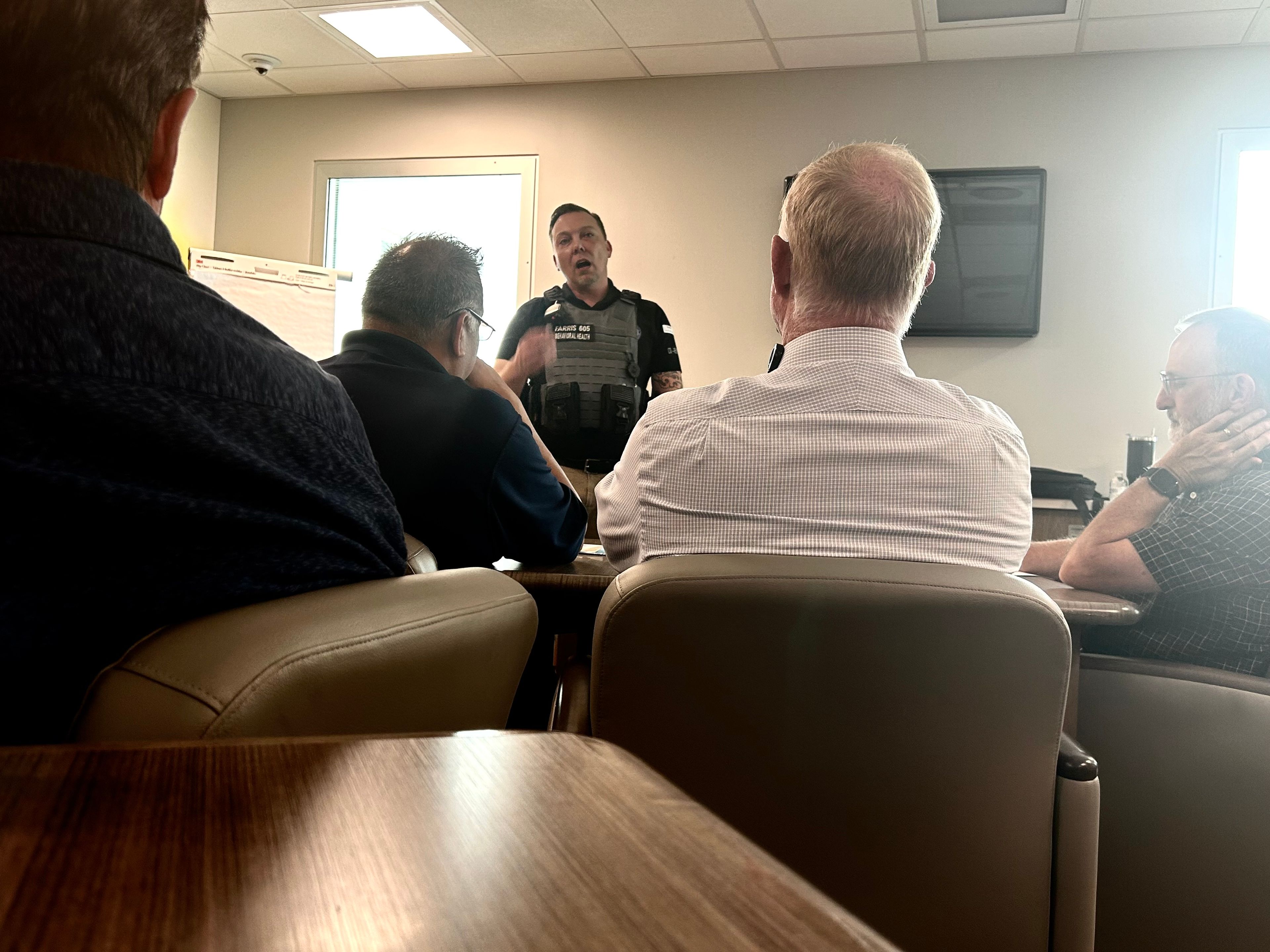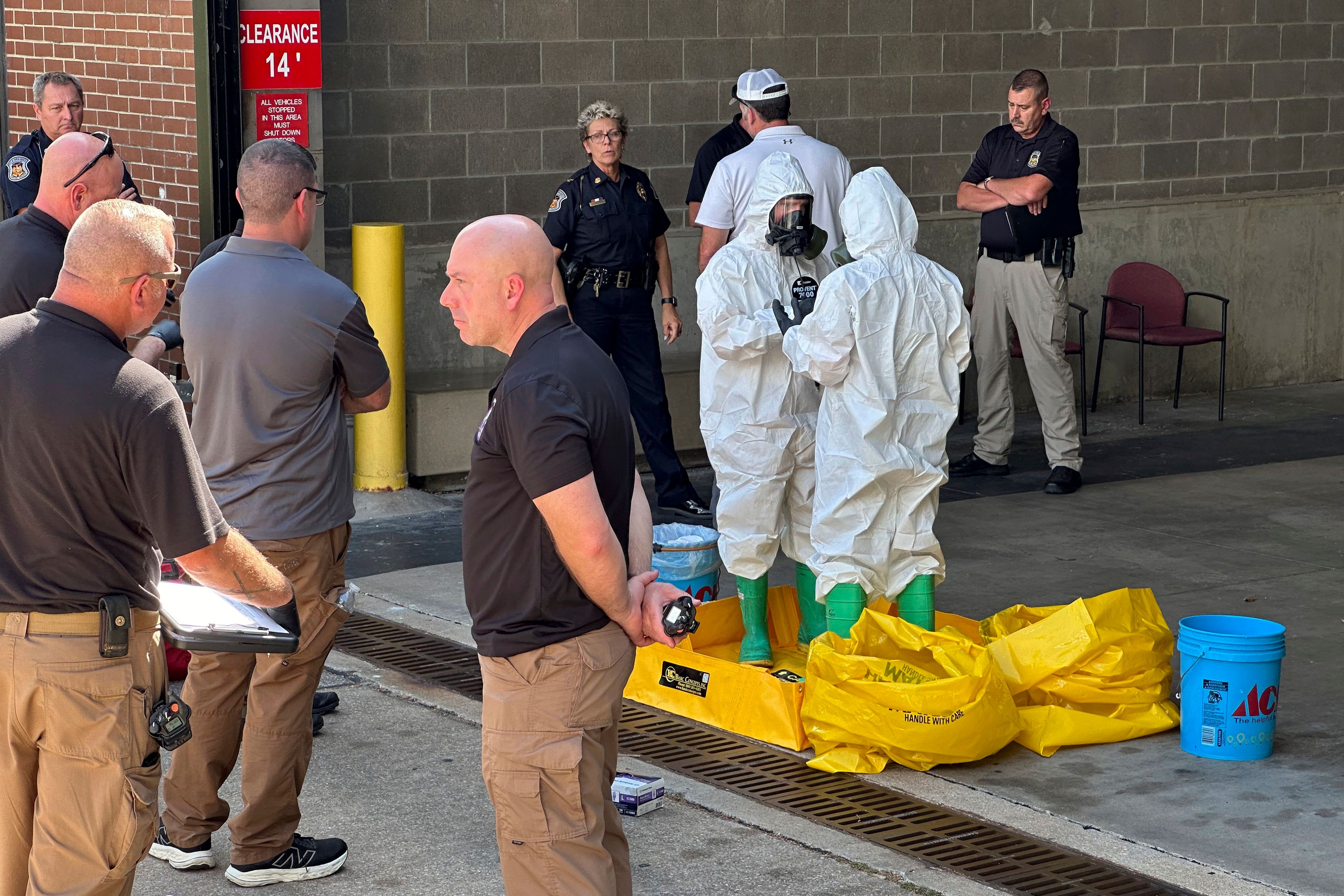Nearly 50 people – mostly pastors or leaders from area churches — crowded into a meeting room at Southeast Behavioral Hospital in Cape Girardeau on Wednesday, Sept. 18, with hopes of finding better ways to address mental health and substance abuse problems in the region.
It was the first of many meetings aiming to unite churches and introduce them to programs and tools to address gritty problems facing the region.
The meeting was borne from conversations between Restoration Community Church pastor the Rev. Bob Lenz, Southeast Behavioral Hospital business development director Amanda Johnson and Cape Girardeau Police Department co-responder Dr. Shannon Farris.
Farris, who responds as a member of the police department to calls that require a mental health professional, sees urgent critical mental health situations on the front lines. He then refers individuals to places where they can receive help. But that can mean a lot of different things, he said.
The idea behind the faith-based meetings, which will become monthly, is to add to the number of referral options in the community by engaging with churches.
The organizers expected no more than 20 attendees at the first meeting, but more than double attended. More chairs were brought in for attendees, who came from a variety of faith-based or social worker backgrounds.
Attendees arrived from all over Southeast Missouri, including Cape Girardeau, Jackson, Poplar Bluff, Scott City and Bollinger County.
“I think the turnout was amazing,” Johnson said after the meeting. She acknowledged that the first meeting was not about finding solutions, but “highlighting the needs in the community. And clearly the churches want to have a response.”
Farris led the meeting, which mostly served as an introduction of individuals and an identification of needs or gaps that churches see when relating to mental health problems, including domestic violence, drug addiction and those having suicidal thoughts. Sometimes needs come in the form of immediate housing, which is currently scarce; food, and employment assistance — solutions that can provide some immediate relief and some that can help provide more long-term improvement.
Churches are often approached for help in times of people’s most urgent needs. Multiple church leaders in the meeting expressed a need for more training or at least guidance such as intake forms, so pastors can know what to ask individuals in crises to identify the right solutions with organizations suited to help them.
Lenz said oftentimes pastors try to provide Biblical counseling when a person needs something more from a licensed counselor trained in mental health care.
“We’re not counselors; that’s not our profession,” he said. “We’re taught to be coaches. I think the answers are right here, but never underestimate what a small church can give.”
The conversation centered around how a person in crisis may need many types of help at once. The idea for future meetings would be to provide information about various community organizations that exist to provide help for those in immediate need, and perhaps also to open the lines of communication to form relationships with individuals with those organizations. One potential solution already offered is to give church leaders access to a database of providers to contact.
It was also noted that ongoing meetings can help churches complement already available services. Churches can be guilty of creating programs within their congregations, without knowing other such programs already exist, Farris noted. The meetings can be suited to identify the gaps, perhaps allowing churches to meet those needs rather than duplicating programs.









